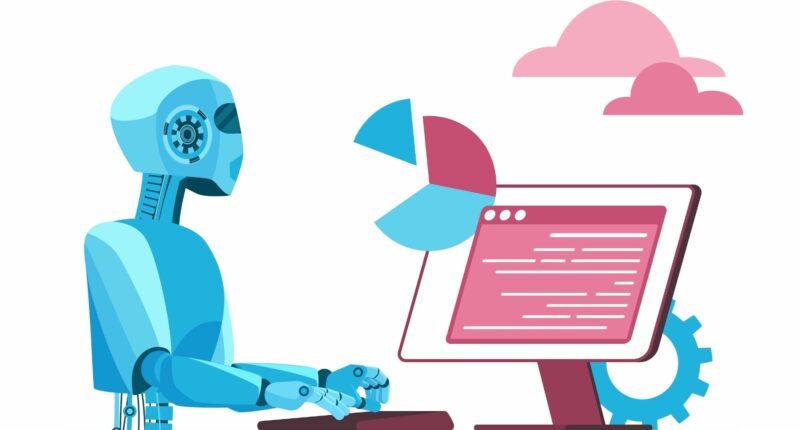Share this @internewscast.com
AI is cutting into entry-level jobs, according to a new Stanford University study, released on Tuesday.
Researchers from Stanford examined ADP payroll data, encompassing monthly employment information for millions of employees across numerous firms, to investigate the impact of AI on workers aged 22 to 25 relative to other age groups.
The research revealed that the professions most susceptible to AI-driven automation included operations managers, accountants, auditors, general managers, software developers, customer service agents, receptionists, and information clerks. Among these AI-affected roles, which experienced the highest loss of entry-level jobs to technology, there has been a 13% reduction in employment for younger workers over the past three years.
Stanford professor Erik Brynjolfsson, an economist and lead author of the study, remarked to Axios, “There’s clear evidence of AI beginning to significantly influence the labor market.” He described the decline in entry-level hiring as “the swiftest, most extensive change” he had observed in the workplace, only surpassed by the shift to remote working during the pandemic.
Contrarily, the research identified that, since the release of ChatGPT in late 2022, employment for more seasoned workers in AI-affected sectors has remained stable or even improved.
In fields such as software engineering and customer service, the study illustrated that “employment for the youngest workers significantly decreased post-2022, while jobs for older age groups experienced growth.”
Brynjolfsson noted that seasoned employees benefit from practical experience, a trait AI currently lacks and has yet to replicate. He cautioned, though, that if entry-level workers aren’t given chances to begin their careers, organizations might struggle to find the next wave of experienced staff.
When it comes to employers, Brynjolfsson noted that the way companies view AI affects whether they have open jobs available. Firms that want to use AI to augment their workforce are hiring more human workers, as those who see AI as a replacement for human labor are hiring fewer employees, he stated.
The study supports another one released earlier this year by SignalFire, a venture capital firm that tracks the job changes of over 650 million people on LinkedIn. In a May report, SignalFire found that big tech companies have reduced entry-level hiring by 25% from 2023 to 2024 while simultaneously increasing hiring of experienced professionals.
SignalFire’s Head of Research, Asher Bantock, told TechCrunch that there was “convincing evidence” that AI was to blame for the reduction in entry-level hiring, because AI can handle routine tasks well. AI can code, conduct research, and even generate web applications, reducing the need for junior employees to handle those tasks.
AI leaders have been warning about the technology’s impact on hiring for months. In June, Nobel Prize winner Geoffrey Hinton, who is often called the “Godfather of AI” due to his pioneering work on AI, predicted that AI “is just going to replace everybody” in white-collar jobs. He said paralegals and call center representatives were most at risk in the immediate present of losing their jobs to AI.
Meanwhile, Anthropic CEO Dario Amodei stated in May that AI could take over half of all entry-level, white-collar jobs within the next one to five years. The move could cause mass joblessness, resulting in unemployment rising to up to 20%, he predicted.
AI is cutting into entry-level jobs, according to a new Stanford University study, released on Tuesday.
Stanford researchers analyzed ADP payroll data, which included monthly payroll information for millions of workers at thousands of companies, to find how AI impacts employment for people ages 22 to 25 compared to other age groups.
The study found that the professions most exposed to automation with AI were operations managers, accountants, auditors, general managers, software developers, customer service representatives, receptionists, and information clerks. In those AI-impacted jobs, which lost the most entry-level positions to the technology, employment for young workers has declined by 13% over the past three years.
The rest of this article is locked.
Join Entrepreneur+ today for access.












